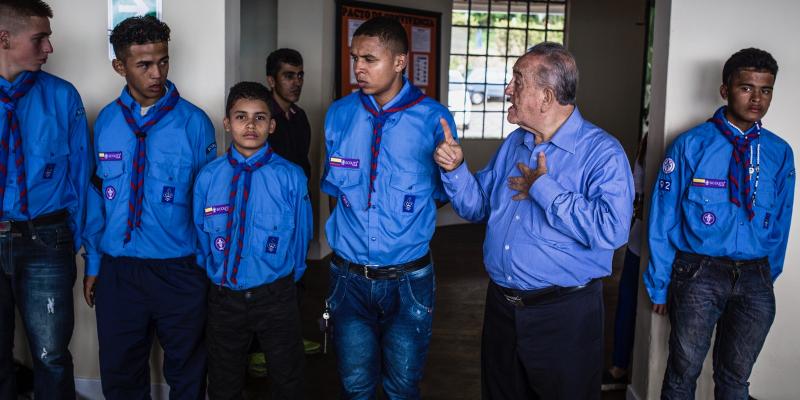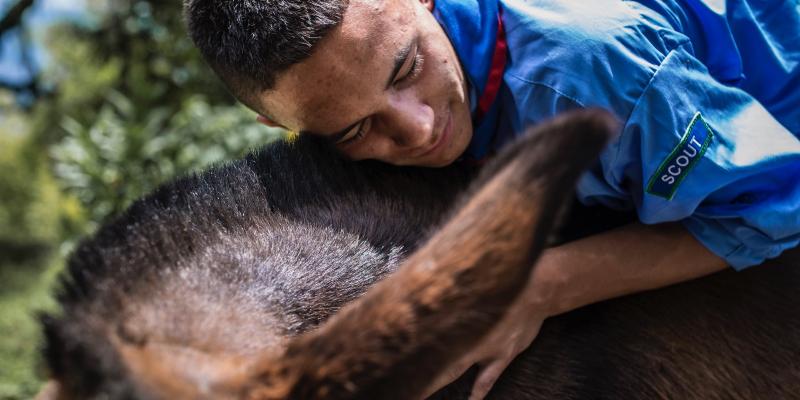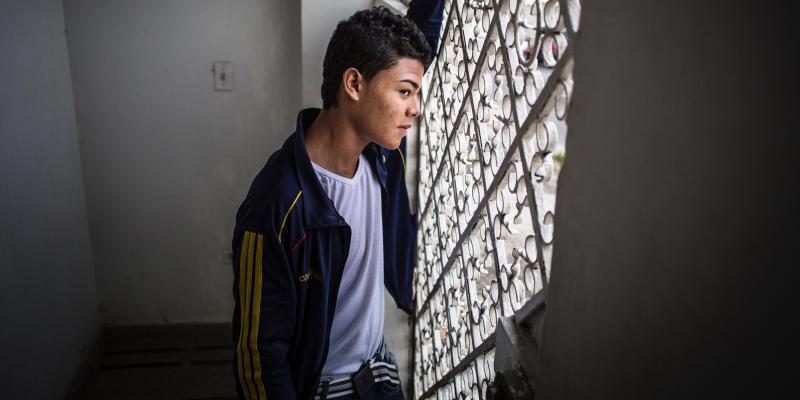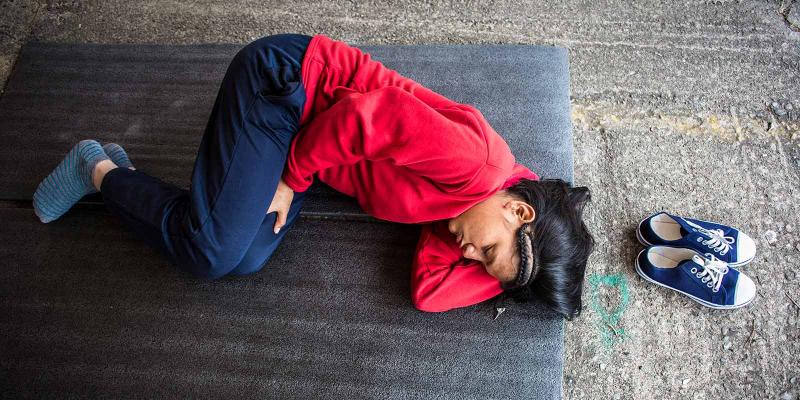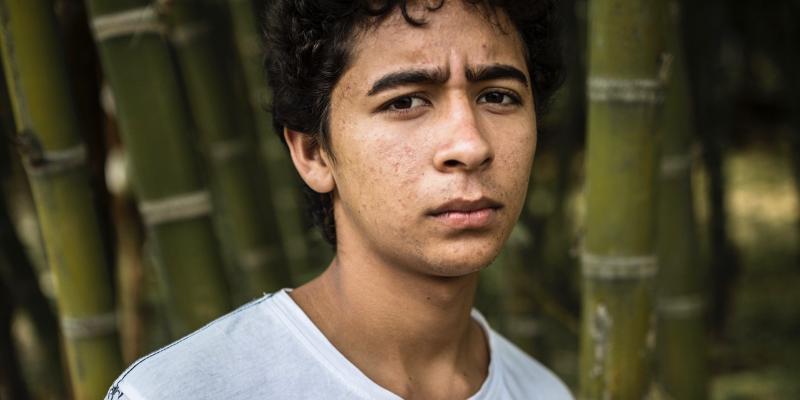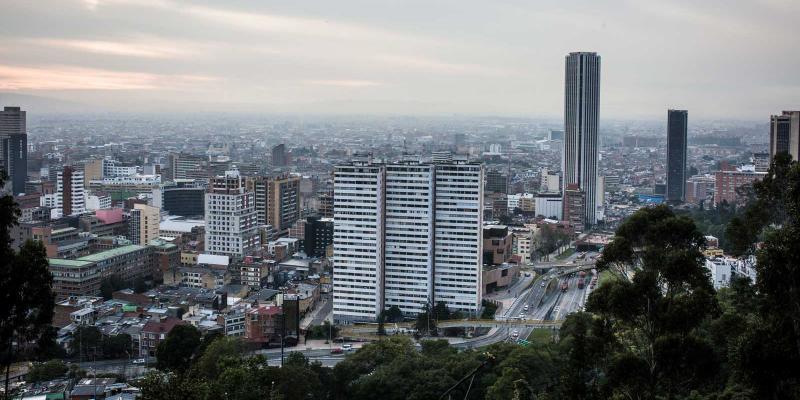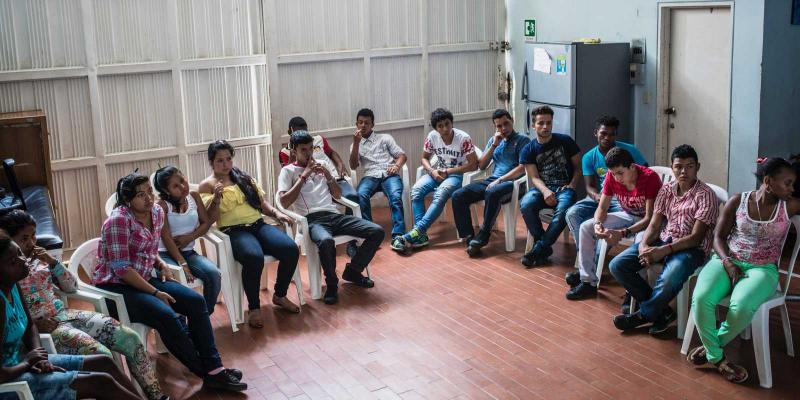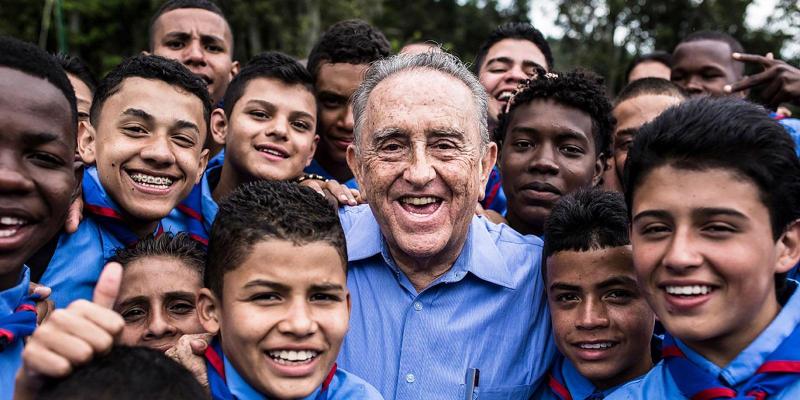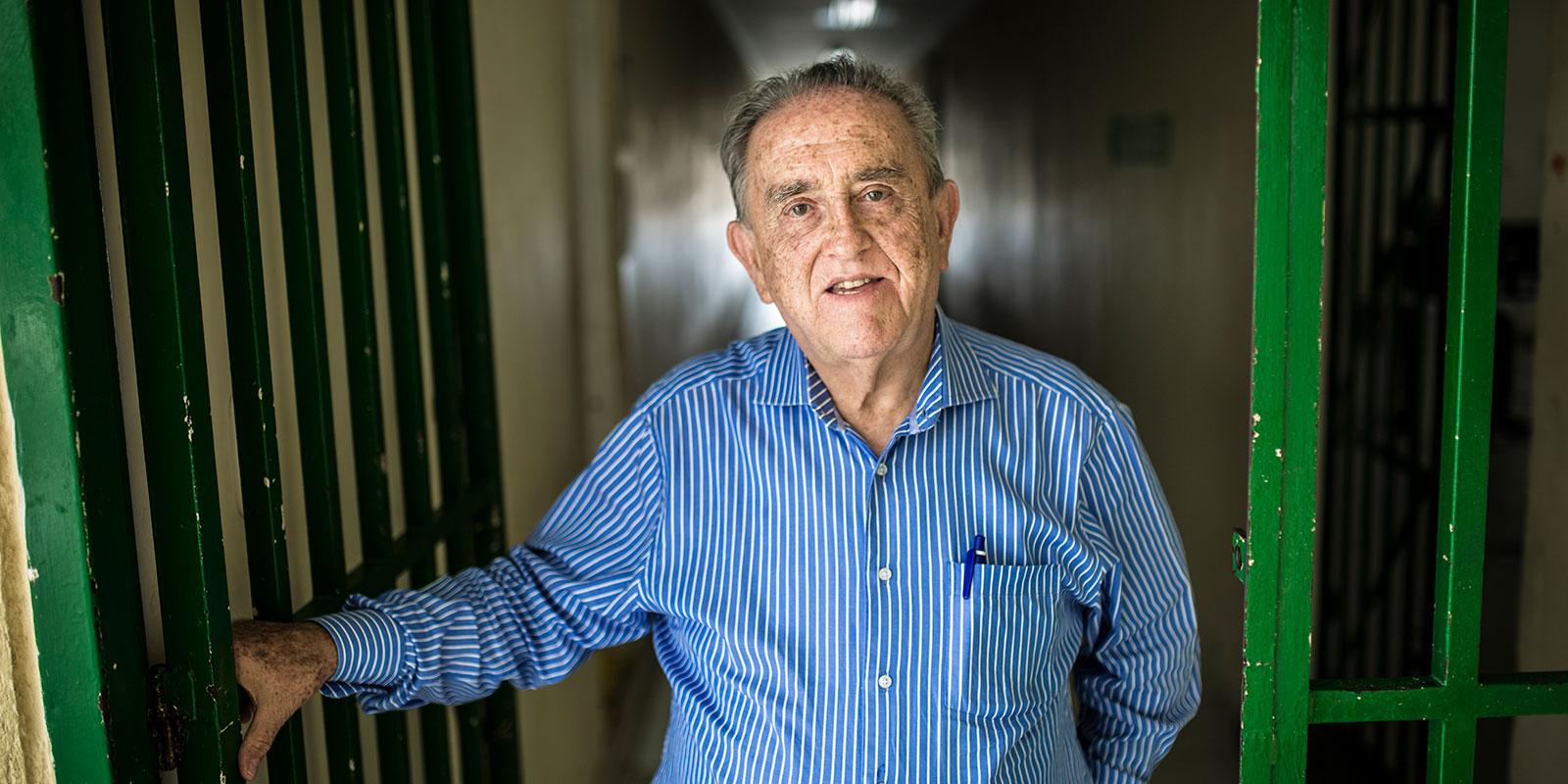
Father Gabriel, as he is known, has worked all his life for the poor and for street children, child soldiers and children sentenced to prison. This work can be dangerous in Colombia, and he has faced several attempts on his life. He once had to escape on horseback in the middle of the night when his house was surrounded by armed men ...
Helping others is something that Gabriel grew up with as it was in his mother’s nature. She always wanted to help people and care for those that needed help.
Gabriel loved going to church when he was little and knew by the age of seven that he wanted to become a priest. When he travelled to the capital Bogotá at the age of 13 to train for the priesthood it was against the wishes of his parents, and they didn’t think he would stick with it. But his parents were wrong.
Helping the poor
At the age of 27, Gabriel was ordered to travel to the Vatican in Rome, Italy, to work with the leaders of the Claretian order. The Claretians are made up of thousands of Catholic priests working to help the poor in over 60 countries around the world.
After returning to Colombia, Gabriel was placed in one of Colombia’s poorest and most inaccessible regions, Chocó, on the Pacific coast. His task there was to help the area’s poor people.
Gabriel loved the people he met in Chocó, which was home to indigenous peoples and black Colombians. People whose rights had been abused for hundreds of years and who had almost nothing.
“It was an important mission for me. Claretians are required to call attention to and condemn injustices. We see hungry, unemployed and people who are discriminated against and we suffer with them. You feel their pain,” explains Gabriel.
When Gabriel left Chocó nine years later he had helped give the area’s residents something that had never existed in these impenetrable wetlands and jungle. With the help of Gabriel and the Claretians, three small transport planes were purchased for the area. Three runways were built, along with 30 clinics and several schools, and lots of children were vaccinated against diseases.
Wanted to kill Gabriel
When Gabriel and his colleagues helped Chocó’s poor farmers to form a cooperative, this angered lots of businessmen. The cooperative allowed the farmers to sell their produce themselves at larger markets outside Chocó and receive more money for their goods. This was how the businessmen used to earn their money.
Late one night there was a knock at Gabriel’s door. It was one of the farmers from the cooperative. He told Gabriel to get dressed and get out of there quickly.
Gabriel saddled his horse and rode through the night away from his house. He was far away by the time the house was surrounded by several men with rifles. They set the house on fire and riddled it with hundreds of rounds of bullets. The businessmen had taken out a contract to have him killed.
On another occasion, Gabriel and a colleague were travelling by plane over Chocó when the engine suddenly caught fire, forcing them to make an emergency landing. When the pilot inspected the engine he found it had been sabotaged. The intention had been for the plane to explode in mid-air.
House for street children
By the time Father Gabriel, as he is known as a priest, arrives in Medellin he is 37. There’s a group of street children living outside his front door in the centre of the city.
“I was working lots and always had a lot to do but I had a bed, a room and food. Meanwhile, there were children sleeping on the street who had nothing.”
Gabriel is an outgoing and positive person. He talks to everyone. He gets to know the street children. Gives them food, blankets and clothes. When they’re unwell he takes them to the doctor.
It’s now that he has the idea of a foundation that will have a reception centre for street children. The foundation would be named Hogares Claret (Claret Homes) after the founder of the order of the Claretians.
Gabriel and a French priest buy a building in Medellin. They open it up for street children. Together with the children, they renovate the building and create Hogares Claret’s first reception centre.
It’s a simple idea: Doctors, psychologists and social workers would live together with the children and take part in their daily activities. The children are offered schooling and therapy. The families of those children who are not orphans are invited to get involved.
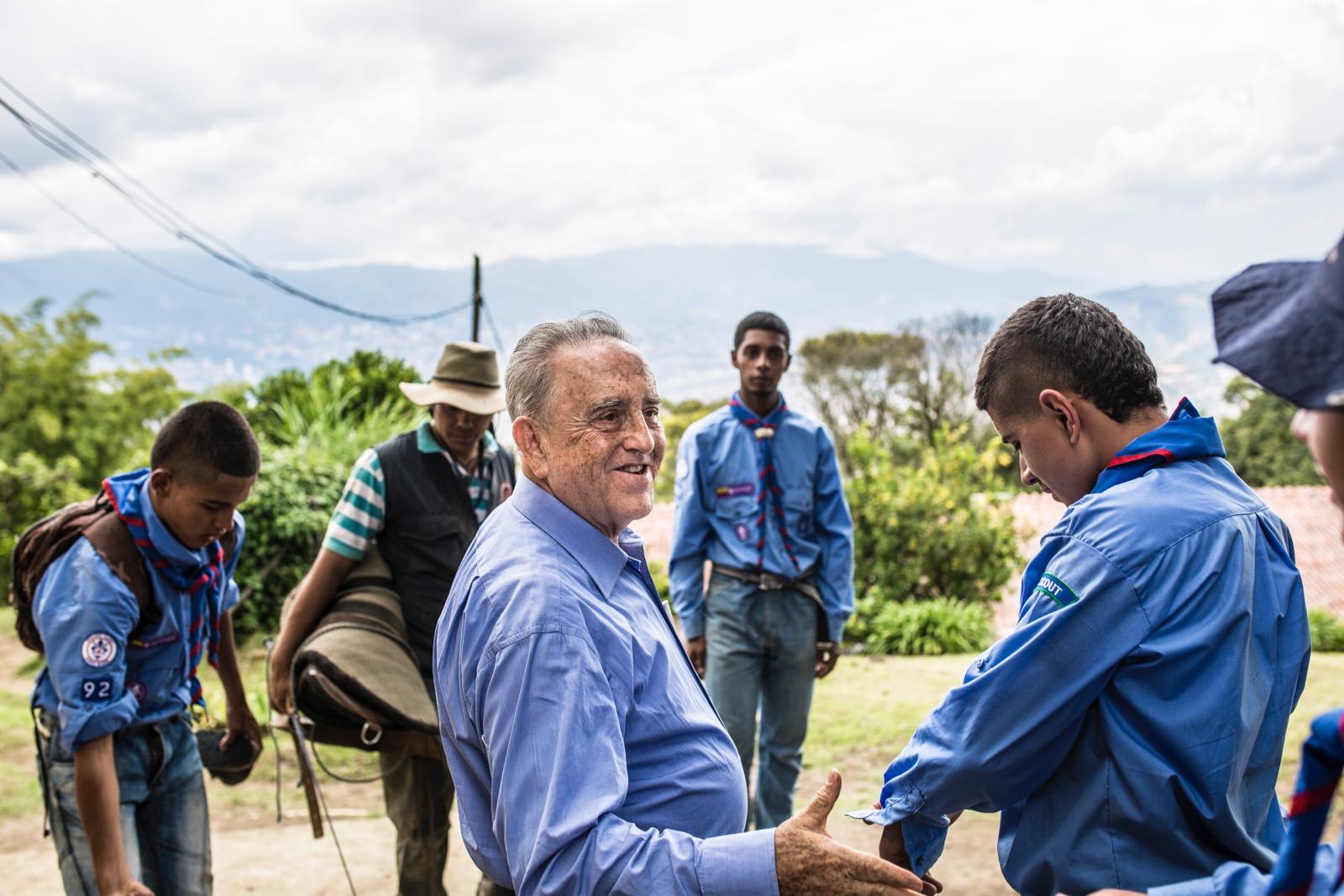
Gabriel is loved by the former street children of Hogares Claret in the capital Bogotá.
Work with no pay
Soon Gabriel has a waiting list of 150 children and young people who want to come to the reception centre. On Sundays, families, neighbours and people associated with the Claretians are invited to the centre. Together they collect food, soap, shampoo, paper, clothes, towels and other items. For the first six years, no one working at the centre is paid.
“My approach has always been that the society that creates the problems should pay for the solution. We live in a society in which the only thing that matters is owning things at the expense of others. These children are the victims of that. We teach them the opposite. We talk about good values, about showing sympathy, being fair, not judging others and showing respect and taking responsibility. It’s strictly forbidden to abuse the children or punish them by beating or using other physical forms of punishment,” says Gabriel.
Gabriel is soon able to open new centres in Medellin, but also in other towns and cities. Colombia’s social services turn to him for help. The war in the country and the trade in cocaine mean that the number of children with problems involving drugs and criminality has increased significantly.
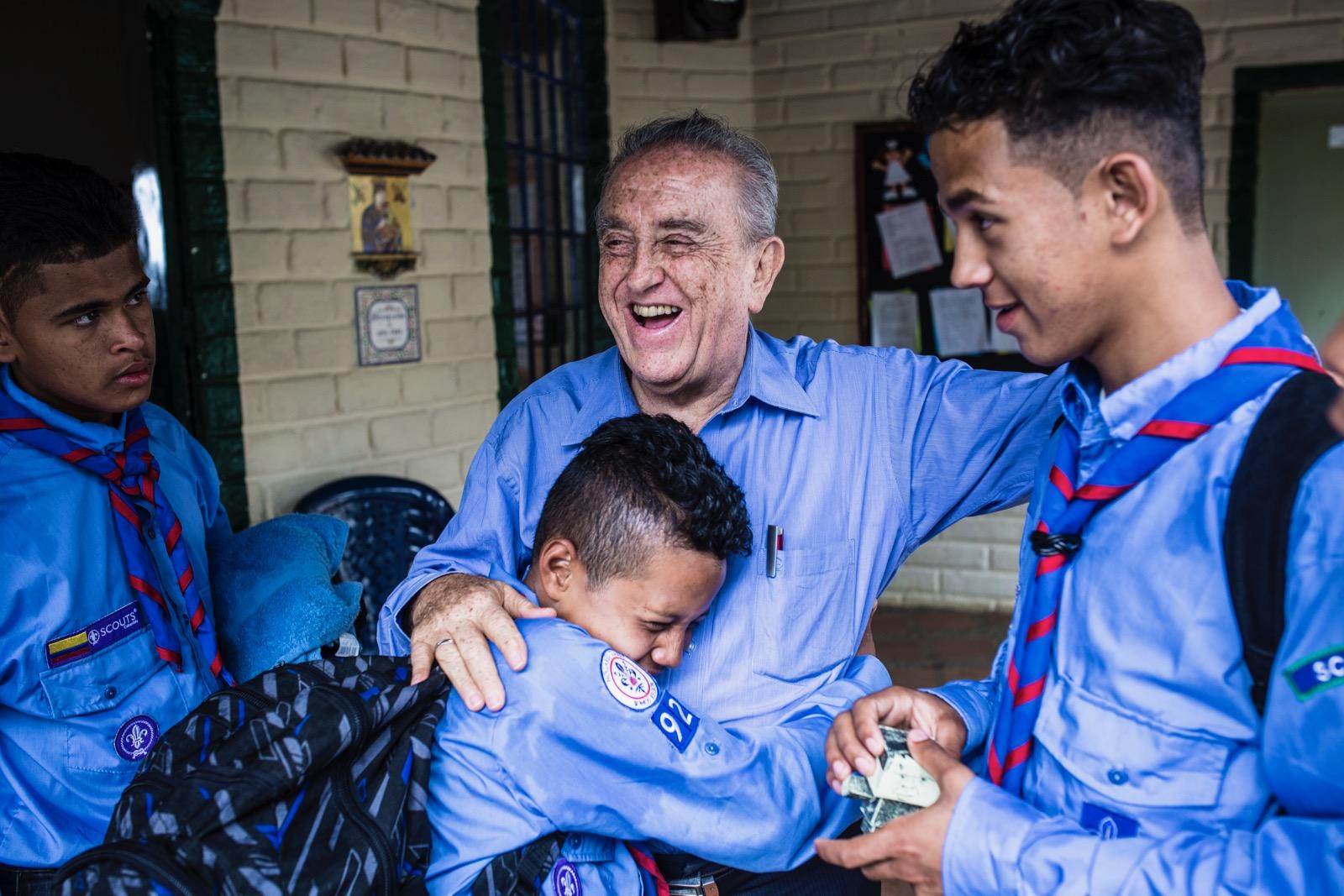
Gabriel is received with hugs at Hogares Claret in Medellin. He takes the time to talk to all the children he meets and shows that he cares and likes them.
Scouts and meditation
Gabriel’s centre is popular and successful. Hogares Claret becomes a member of the Colombian Scout movement and all the children that come to the foundation’s centre become Scouts.
Gabriel works far too much. On one of his trips, he learns yoga and meditation. He feels it helps and from that day he does a session of yoga and meditates a few times a day. These activities are also introduced at Hogares Claret.
“The first time I meditated, my stress just disappeared and I felt so much calmer. Some of the children we meet also suffer from great stress, lots of aggression and violence. I thought if it helped me it should help them. Now both meditation and the Scout movement are part of the peaceful societies that we’re creating together with the children.”
Dreaming about the future
Colombia’s social services now pay Hogares Claret to operate reception centres, not just for street children. They also run juvenile detention centres, centres for former child soldiers and support young people who have been through their programme and want to go to university.
Many of the people and youth leaders that work at the foundation’s various centres once attended Hogares Claret as children. One of them initially tried to kill Gabriel. Because just as Gabriel once angered businessmen in Chocó, in the city suburbs he came into conflict with lots of criminal gangs.
“We were due to visit a woman with two children who were drug abusers. Suddenly this boy appeared with a gun. He shot at us and drove off in a car. He later came and found me and asked for forgiveness. He now works for me.”
Gabriel has also been shot at because drug dealers feel he has taken away the gang’s best drug dealers.
“One of this country’s greatest failings is its prisons. They lock people up and give them no hope for the future. At our juvenile detention centres, young people dream about the future. I hope at some point to completely change detention centres for young criminals,” says Gabriel. c
TEXT: ERIK HALKJAER Photos: JESPER KLEMEDSSON
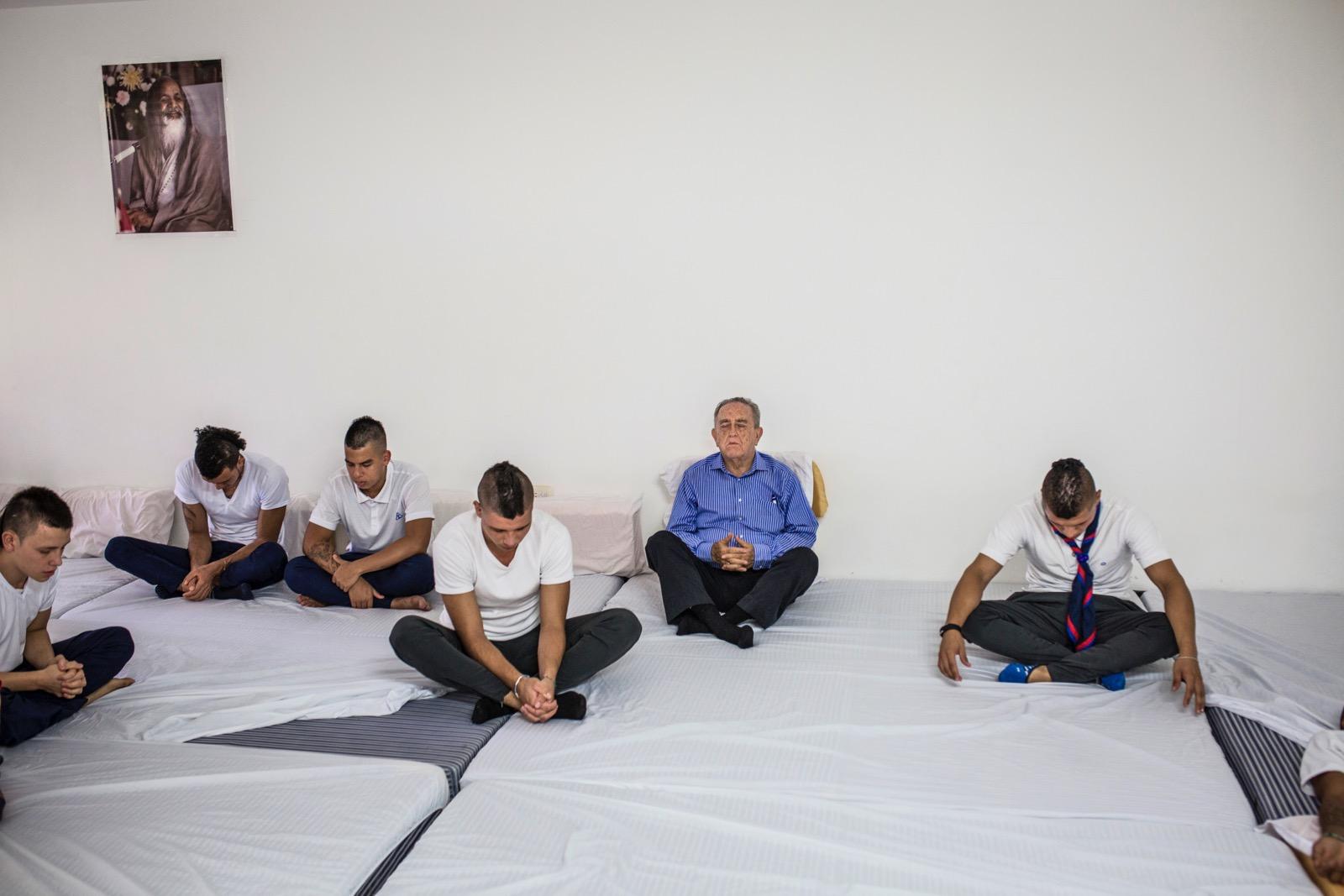
Gabriel learnt yoga and meditation on one of his trips. He felt that it helped with stress and, since then, all children at Hogares Claret centres practice yoga and meditation every day.
Related stories
Långgatan 13, 647 30, Mariefred, Sweden
Phone: +46-159-129 00 • info@worldschildrensprize.org
© 2020 World’s Children’s Prize Foundation. All rights reserved. WORLD'S CHILDREN'S PRIZE®, the Foundation's logo, WORLD'S CHILDREN'S PRIZE FOR THE RIGHTS OF THE CHILD®, WORLD'S CHILDREN'S PARLIAMENT®, WORLD'S CHILDREN'S OMBUDSMAN®, WORLD'S CHILDREN'S PRESS CONFERENCE® and YOU ME EQUAL RIGHTS are service marks of the Foundation.



